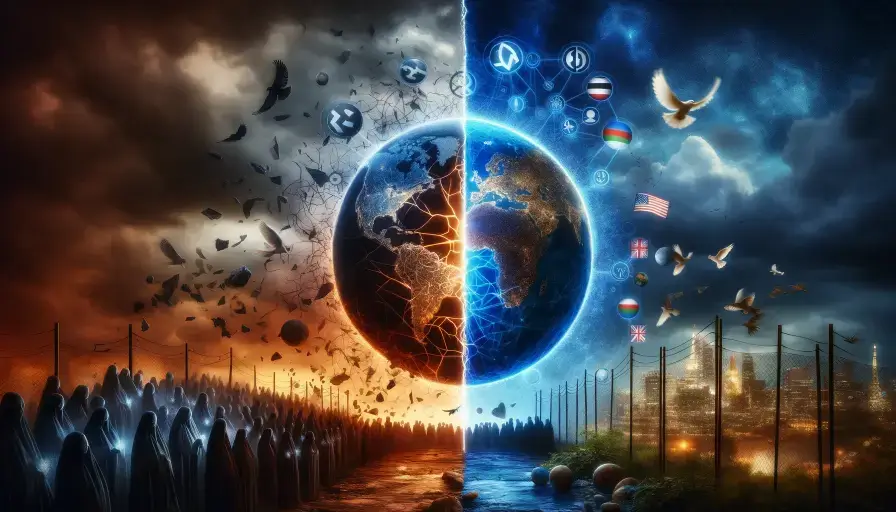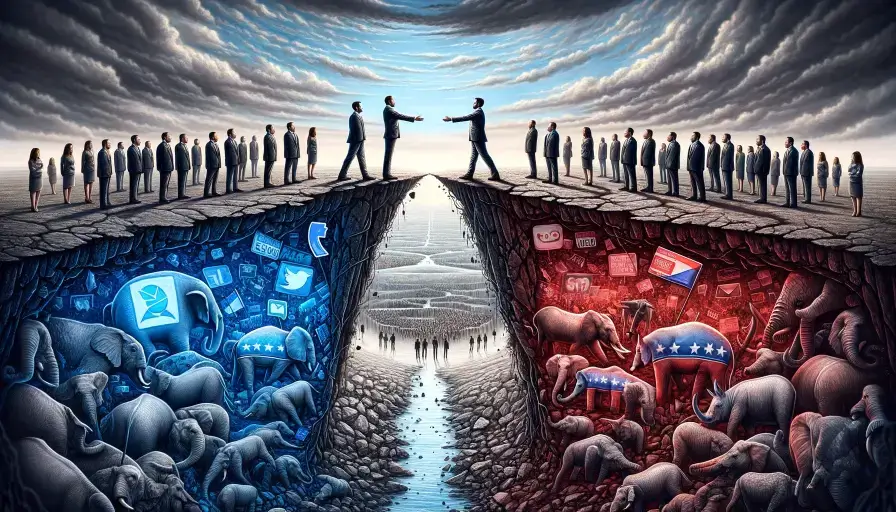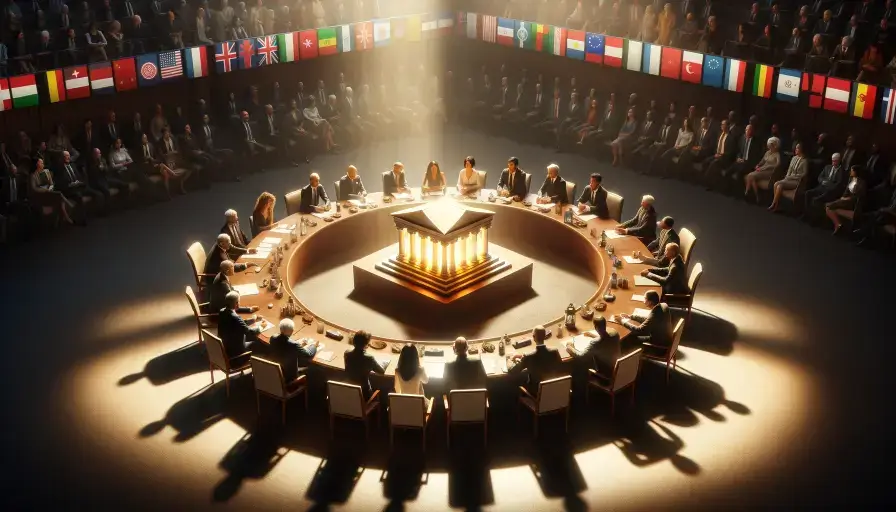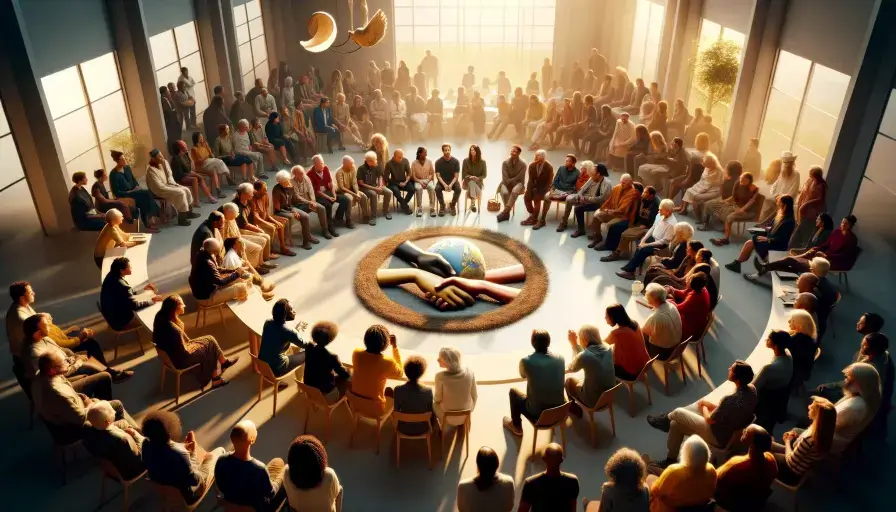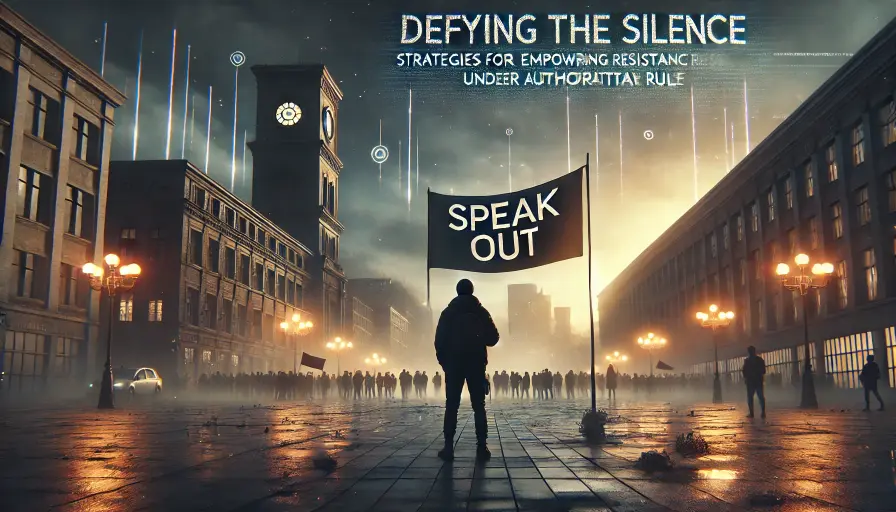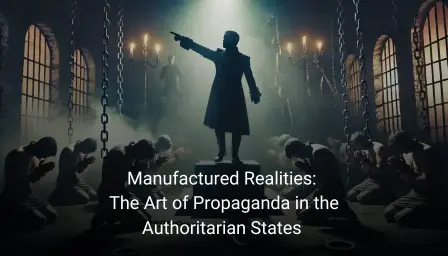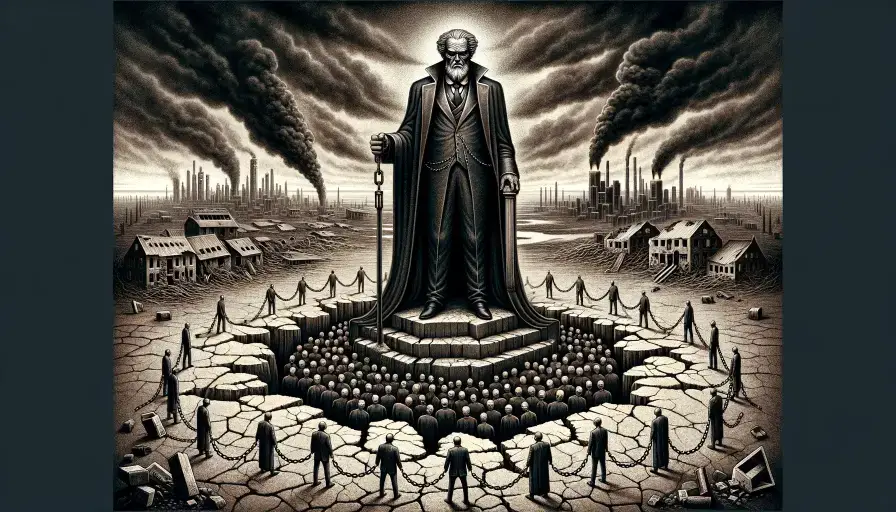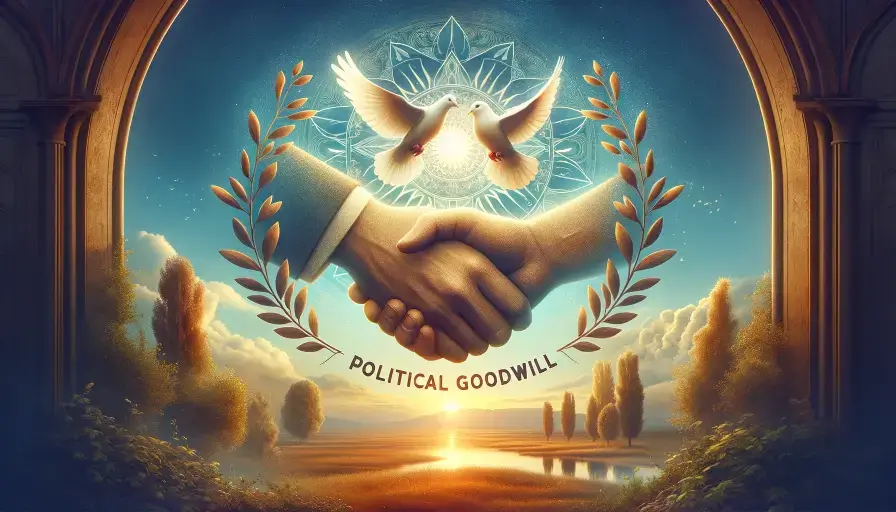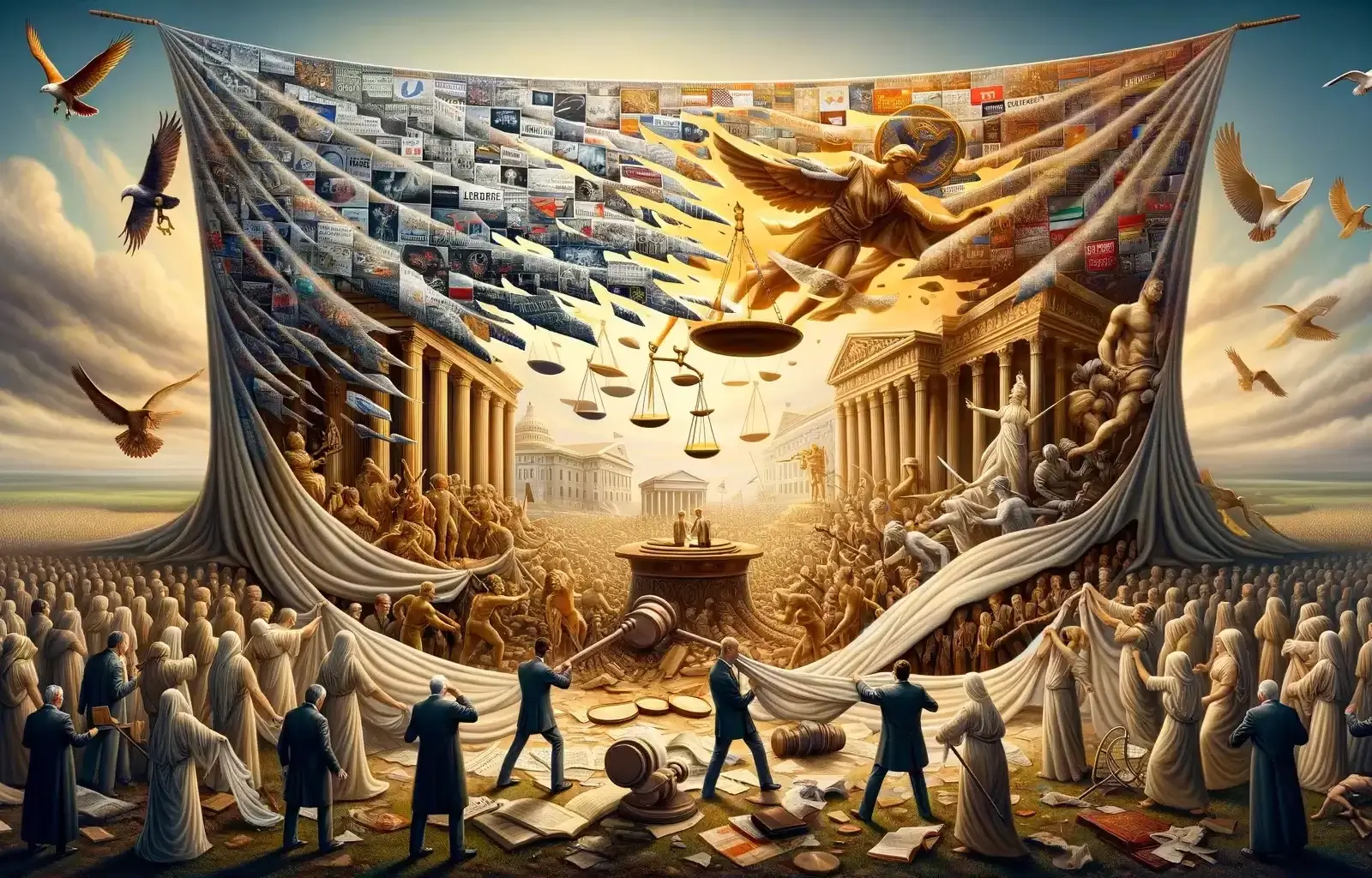Due to the digital landscape, political tribalism, characterized by loyalty to one’s political party or ideology, has become a significant issue in our society.
This divisive “us versus them” mentality threatens democratic discourse and community cohesion. It reflects our primal instinct for belonging and protection within a group, yet its manifestation in contemporary politics threatens to erode the foundations of democracy.
As societies grapple with increasing polarization, it is urgent to understand, address, and transcend political tribalism. This article explores political tribalism’s historical roots, driving forces, and multifaceted impacts on public policy, social harmony, and democratic integrity.
It outlines a course toward overcoming divides and fostering a political landscape marked by inclusivity, understanding, and shared purpose.
The article will delve into the origins of political tribalism, highlight its key drivers, and elucidate its profound effects on societal dynamics.
It presents actionable solutions and global success stories, offering hope and guidance for communities and nations striving to bridge the chasms caused by political tribalism.
The Rise of Political Tribalism: Understanding its Origins and Impact
Before we discuss political tribalism, we must understand it. Tribalism was the dominant social order of the 18th and 19th centuries.
The literal definition of a tribe is a social division in a traditional society. It consists of communities linked by social, economic, religious, and blood ties. A tribe has a shared culture and dialect and a recognized leader.
Nations live in underdeveloped countries, and their governments are led by tribalism. Tribalism can also be seen in developing countries like the USA and Europe. Tribalism in developed nations is known as” political tribalism,” and people are labeled as conservative and liberal or Democrat and Republican.
Human beings are social animals. For centuries, we have had to associate with and depend on others to survive. Being in a larger group increases a person’s chance of surviving. Unfortunately, this dynamic also causes us to favor only one community member.
Sometimes, we stereotype and view other social groups and parties with mistrust. Very few among us view different communities as inferior and see them with hatred.
What is Political Tribalism
Tribalism refers to strong loyalty towards one’s perceived group and treating outsiders as threats. As defined by Chua (2018):
Tribalism is the sense of belonging to one group, with its interests, values, customs, and culture, combined with an instinct to defend that group passionately against others.
In politics, tribalism manifests as excessive loyalty towards a party. Adherents defend their party vigorously, attack opponents, ignore unethical actions by their party, and refuse reasonable compromises. This hinders functioning democracies.
Human societies in various parts of the world, including underdeveloped countries, often govern themselves by tribalism. This phenomenon is not limited to less developed nations but can also be observed in developing countries like the United States and Europe.
In developed nations, tribalism manifests as political tribalism, where individuals align themselves with specific political ideologies or parties such as conservative and liberal, Democrat and Republican.
The roots of tribalism can be traced back to human beings’ inherent social nature. Humans have relied on social connections and group affiliations for survival and prosperity, a testament to their innate tribalism, which is now mirrored in political tribes.
Belonging to a community or group has traditionally increased an individual’s chances of survival and success. However, this sense of belonging and loyalty to one’s group often leads to favoritism towards members of the same community while fostering mistrust and stereotypes towards outsiders.
In some cases, this tribal mentality can escalate to viewing other social groups or political parties as inferior or even enemies. Such negative perceptions can result in deep-seated hatred and conflict between different groups.
Despite the prevalence of tribalistic tendencies, it is essential to recognize that not everyone harbors feelings of hatred or superiority towards other communities. Only a tiny fraction of individuals hold extreme views that promote division and discord among different social or political groups.
Key Drivers of Political Tribalism
Below are some key reasons why political tribalism has increased globally:
- Ideological silos: People increasingly consume news from partisan sources that confirm their biases rather than challenge their views (Sunstein, 2018
- Group polarization: On social media, like-minded people push each other to extreme positions, fueling tribal behavior (Lees and Cikara, 2020)
- Economic inequality: Perceived competition over resources can trigger tribal instincts (Piketty, 2020)
- Identity politics: Focusing excessively on gender, racial, religious, or cultural identities can create tribal divisions (Fukuyama, 2018)
This shows that political tribalism does not arise organically but is actively shaped by societal structures. Reform requires addressing these root causes inherent in the political tribe dynamics.
Impacts of Political Tribalism
Decades of behavioral science and political psychology research demonstrate how political tribalism negatively affects societies.
Table 1: Key Impacts of Political Tribalism
| Impact | Description |
| Policy Gridlock | Intense partisanship makes compromise difficult, leading governments to underperform (Lee et al., 2019) |
| Poor Public Discourse | Supporters tolerate dishonest rhetoric from their party and demonize opponents (Graham and Svolik, 2020) |
| Democratic Erosion | Tribal voters support populist autocrats from their group who undermine democracy (Blankenship et al., 2018) |
| Mis-information Spread | People readily spread fake news that confirms their partisan biases (Vraga and Bode, 2021) |
| Institutional Distrust | Distrust spreads toward institutions like media, judiciary, and electoral bodies (Davis and Dunaway, 2020) |
This shows tribalism degrades truth, institutions, policymaking capacity, and democracy. Overcoming political divides is critical.
Political Tribalism is a Social Misfortune:
Political tribalism is a social ill that has long plagued the human race. Each party, as a tribe, thinks his party and groups have the key to development and believes they are the only ones who are pure and right. The worst crimes in human history were and are committed with a tribal and sectarian view.
We need to choose to see people for who they are and their ideas and values, not for a tribe or their political party. Indeed, we should respect their view, recognizing it as part of the complex web of humans.
Politicians frequently utilize the media to foster divisions among the people intentionally and induce fear, perpetuating the concept of an “other” group, whether real or imagined, to attain political success.
Our respect should emanate from their opinions and viewpoints. We acknowledge their perspective if it creates unity, equality, progress, and harmony.
The worst part is that political tribalism trumps rational thinking and morals. We will likely let unjust and unlawful action slide if someone from our party commits the crime. However, the sharp sword will emerge when someone from another group perpetrates it.
Underdevelopment is not the only originator of tribalism and its evil sister racism. Unspeakable evils have occurred in civilized nations in the name of race and color.
The reasons for these heinous acts were because “the others” came from a different group, race, color, and/or ideology, an expression of “tribalism” that has seeped into various aspects of politics today.
Solutions to Overcome Tribalism
Psychologists and political scientists have proposed solutions so democracies can overcome tribalism and polarization:
Reform Societal Structures
Policies that reduce inequality, curb sensationalist media, strengthen inter-community bonds, and establish ground rules for debates can temper tribal behavior over the long run. Leaders must enact institutional reforms to reshape public discourse and rebuild social cohesion (Neblo et al., 2018).
Find Common Humanity
Voluntary contact between opposing groups to pursue common goals can reduce prejudices, challenging and Reminding people of shared identities (e.g., residents of a country) also dampens tribalist instincts (Lees and Cikara, 2020). Such initiatives humanize the other side.
Teach Civics & Critical Thinking
School curriculums incorporating moral education, civics training, consciousness of biases, and critical analysis of media sources can inoculate future generations against hyperpartisanship (Idriss, 2021). This empowers citizens.
Establish Truth Institutions
Independent fact-checking bodies, protections for whistleblowers, tighter libel laws, and regulations on mis/disinformation can counter fake partisan narratives that divide societies (Vraga and Bode, 2021). Shared truth is essential.
Embrace Principled Conservatism
Consistently applying fixed moral principles, such as the rule of law, anti-corruption, etc., to judge one’s party rather than rationalizing unethical actions exhibits principled, not tribal conservatism (Boston, 2021). This constrains opportunists.
Respect Others’ Opinions and Adopt Bipartisanship:
Political dialogue: When we look beyond political tribalism, we strengthen our country in all fields. We must focus on the issues that matter to the people, such as economic progress, health, security, and education.
Then, we can move forward faster. We are witnessing combative political parties in developed and underdeveloped nations. The elections are testy, and significant political disagreements occur.
It would be great for peace and security if the opposition parties worked bipartisanly.
“Bipartisanship is a way of approaching leadership that prioritizes governance. It evaluates ideas outside one’s ideology.
It tempers one’s political rhetoric and seeks opportunities to work with the other party. Helps to build greater consensus.” The Lugar Center
Democracy is the only instrument for realizing the people’s will and power.
Divisive Political Tribalism: A Growing Concern in the Quest for Global Unity
In an era where many nations are moving towards a future characterized by unity, cooperation, and the erasing of borders, a contrasting trend emerges with a small yet influential group.
This group clings to an outdated ideology that champions closed borders and isolationist principles, often rooted in the core beliefs of their political parties, reflecting a kind of political tribalism seen in American politics today.
Utilizing their positions of power, they actively push policies that aim to separate rather than unite, creating an increasingly divided world rather than harmoniously integrated.
Proponents of such ideologies employ worryingly divisive tactics. They categorize individuals based on their country of origin, skin color, religious beliefs, and gender, adopting a superiority complex toward those from developing nations.
This mindset is driven by a belief that these individuals hail from regions lacking in development or strategic importance, whether politically, economically, or militarily. This narrow viewpoint undermines individuals’ dignity and contradicts the essence of global progress and unity.
Strikingly, many of those who advocate for these divisive policies also profess deep religious convictions.
They regard their holy scriptures as fundamental to their life and political ideology, yet their actions starkly contradict the principles of compassion, justice, and love central to these religious teachings. Instead, they opt for a path of hatred and division, abandoning their moral compass and the teachings they claim to hold dear.
This paradox extends to politics, where these individuals, once they attain power, abandon their sense of collective humanity and ethical obligation. They perceive the world exclusively through the lens of political tribalism, characterized by sectarianism and partisanship.
This approach exacerbates division and hinders the collective pursuit of a just, equitable, unified global community.
Confronting political tribalism requires a concerted effort to promote inclusive, compassionate policies rooted in a genuine desire for global unity.
To truly overcome the challenges posed by divisive politics, it is imperative that we collectively strive to transcend the narrow-minded ideologies perpetuated by tribal politicians.
Embracing policies that foster understanding, respect, and cooperation among all peoples is not just a moral imperative but a necessary step towards building a world where unity prevails over division.
Global Perspectives on Political Tribalism
Political tribalism transcends geographical boundaries, manifesting in various forms around the world.
In countries across Africa, Asia, Europe, and the Americas, the core elements of tribalism—ingroup loyalty and outgroup hostility—fuel political divisions, albeit under different socio-political contexts.
For instance, in countries like India and Brazil, the rise of identity politics has heightened tensions between different ethnic, religious, and social groups, illustrating how political tribalism can exploit existing societal fractures.
Similarly, European nations grappling with immigration and national identity issues have witnessed the ascent of political movements that echo tribalistic sentiments, further emphasizing the global nature of this challenge.
These examples highlight the need for universal strategies that can be adapted to each country’s unique cultural and political landscape, underscoring the importance of international collaboration in addressing the roots of political tribalism.
Overcoming Political Tribalism: Global Success Stories in Brief:
Several countries and groups have made strides in overcoming political tribalism through innovative approaches that foster unity, dialogue, and understanding.
Rwanda’s journey post-genocide:
It is a poignant example of national reconciliation. Through community-based approaches like the Gacaca courts, Rwanda has worked to heal the deep wounds of tribal hatred, focusing on restorative justice and reconciliation. This process has not been without its challenges. Still, it offers valuable lessons in the power of community engagement and the necessity of confronting painful histories to build a more unified future.
The New Zealand Experience:
New Zealand’s approach to addressing historical injustices and tribal divisions through the Treaty of Waitangi settlements process is a notable example of overcoming political tribalism by fostering national unity and respect for indigenous rights.
The Treaty of Waitangi, signed in 1840 between the British Crown and Māori chiefs, is considered the founding document of New Zealand. However, its interpretations and implementations have been sources of contention.
The settlements process, initiated in the late 20th century, seeks to rectify breaches of the Treaty by the Crown, acknowledging past wrongs and providing redress to affected Māori iwi (tribes).
This process includes financial compensation, land return, and formal apologies, aiming to restore the economic and cultural well-being of Māori communities. One of the critical aspects of this approach is the recognition of the Māori as distinct people with unique rights, fostering a partnership between the Māori and the state.
This process has significantly improved Māori-Crown relations and promoted biculturalism and mutual respect within New Zealand society.
It represents a commitment to dialogue, truth-telling, and reconciliation, serving as a model for addressing historical injustices and reducing tribal tensions.
The success of the Treaty settlement process underscores the importance of acknowledging the past and working collaboratively towards a shared future. These principles can be applied globally to overcome divisions and build cohesive societies.
Fridays for Future:
Fridays for Future is a global climate strike movement that began in August 2018 when Swedish activist Greta Thunberg started skipping school to protest outside the Swedish parliament, demanding more decisive climate action.
Her solitary protest quickly gained international attention, inspiring millions of young people worldwide to join the cause. The movement is characterized by students taking time off from school on Fridays to participate in demonstrations advocating for policies to combat climate change.
The success of Fridays for Future lies in its ability to unite individuals from diverse political, cultural, and geographical backgrounds around the common goal of addressing the climate crisis.
The movement has transcended political tribalism by emphasizing the universal impact of climate change, which affects all of humanity regardless of political affiliation or nationality.
Through peaceful protests, social media campaigns, and public speaking engagements, Fridays for Future has brought significant public and political attention to the urgency of climate action.
The movement showcases the power of youth mobilization and collective action in challenging the status quo and pushing for significant policy changes.
It demonstrates how shared concerns and goals can bridge political divides, fostering a sense of global community and responsibility. Fridays for Future exemplifies how activism and engagement, driven by a unifying purpose, can overcome political tribalism barriers to enact positive global change.
These examples underscore that while the path to overcoming political tribalism is complex and fraught with challenges, it is possible through concerted efforts prioritizing dialogue, justice, and reconciliation.
By learning from these success stories, societies can develop strategies that address the symptoms of political tribalism and its underlying causes, paving the way for a more united and peaceful world.
Conclusion:
Overcoming political tribalism is not an easy feat, but it’s necessary for the health of our democracies and societies. By understanding its roots, recognizing its impacts, and implementing strategies to foster understanding and cooperation, we can begin to bridge the divides that separate us. As we navigate these challenging times, remember that our strength lies in our ability to come together, respect diverse viewpoints, and work towards common goals.
References:
Blankenship, B., Redford, L., & Strain, C. (2018). Political tribalism in America. Sociology Compass, 12(3), e12583. https://doi.org/10.1111/soc4.12583
Boston, R. (2021). Divided we fall: The rise of identity politics and the decline of principled conservatism. St. Martin’s Publishing Group.
Chua, A. (2018). How America’s identity politics went from inclusion to division. The Guardian. https://www.theguardian.com/society/2018/mar/01/how-americas-identity-politics-went-from-inclusion-to-division
Davis, N., & Dunaway, J. (2020). League of Danger and Delusion: Partisan Bias in Evaluations of Truth and Institutional Trustworthiness. Social Forces. https://doi.org/10.1093/sf/soa155
Fukuyama, F. (2018). Identity: The demand for dignity and the politics of resentment. Farrar, Straus and Giroux.
Graham, M., & Svolik, M. (2020). Democracy in America? Partisanship, Polarization, and the Robustness of Support for Democracy in the United States. American Political Science Review, 114(2), 392-409. https://doi.org/10.1017/s0003055420000052
Idriss, S. (2021). Overcoming Political Polarization: The Power of Civics Education. Rowman & Littlefield.
Lees, J., & Cikara, M. (2020). In the tribal mind: The biological roots of our polarized politics. Foreign Affairs, 99, 118.
Lee, F., Aaldering, L., He, J., & Ralston, J. (2019). Triggers for Policy Gridlock: Social Identity, Hostile Media Perceptions, and Issue Importance Asymmetry. Political Psychology, 40(5), 1021-1038. https://doi.org/10.1111/pops.12570
Neblo, M., Esterling, K., Kennedy, R., Lazer, D., & Sokhey, A. (2018). Who Wants To Have A Tea Party? The Who, What, And Why Of Political Polarization. American Political Science Association. https://doi.org/10.1017/s0003055418000023
Piketty, T. (2020). Capital and ideology. Harvard University Press.
Sunstein, C. (2018). #Republic: Divided democracy in the age of social media. Princeton University Press.
Vraga, E., & Bode, L. (2021). Using Expertise to Counter Misinformation. Harvard Kennedy School Misinformation Review. https://doi.org/10.37016/mr-2020-77


